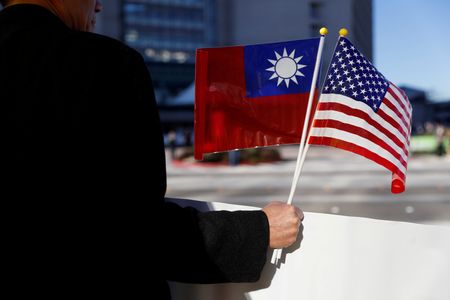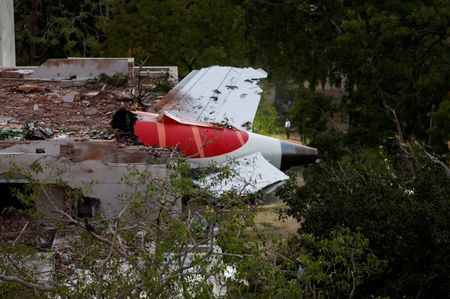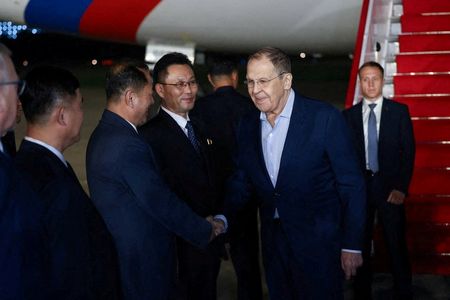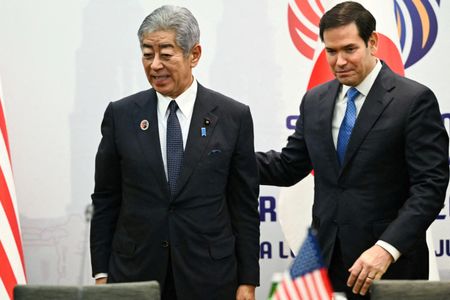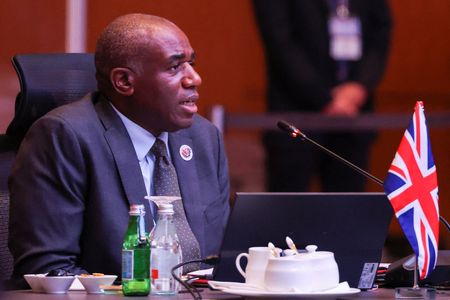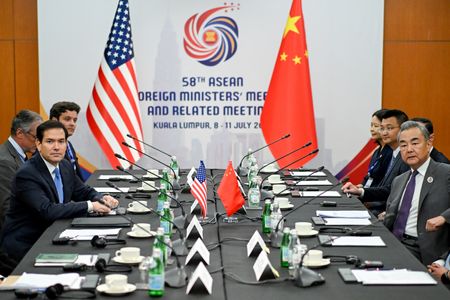By Trevor Hunnicutt
WASHINGTON (Reuters) – President Joe Biden will dispatch former U.S. officials to Taiwan as its new president takes office, a show of support for the island calibrated to avoid enraging Beijing.
Biden is sending a bipartisan delegation to Monday’s inauguration of Taiwanese president-elect Lai Ching-te consisting of former White House economic adviser Brian Deese, one-time State Department official Richard Armitage, Brookings Institution Taiwan expert Richard Bush and Laura Rosenberger, who runs the nonprofit organization that manages unofficial U.S.-Taiwan relations, according to a senior administration official.
Beijing has labeled Lai, who was elected in January, a “dangerous separatist” and has rejected repeated offers for talks.
Beijing considers the self-governed island its own territory, a position the government in Taipei strongly rejects.
“The delegation will arrive this weekend in Taipei and during their visit the delegation will attend the May 20 inauguration ceremony and meet with a range of leading figures,” said a senior Biden administration official.
The move is in line with past practice and represents no shift in U.S. policy, the official said. “Beijing will be the provocateur should it choose to respond with additional military pressure or coercion.”
Washington switched diplomatic recognition from Taipei to Beijing in 1979 and has long said it does not support a formal declaration of independence by Taiwan.
It does, however, maintain unofficial relations with the island and remains its most important backer and arms supplier.
Over the past four years, China’s military has significantly ramped up its activities around democratically governed Taiwan.
Biden has previously upset the Chinese government with comments that appeared to suggest the United States would defend the island if it were attacked, a deviation from a long-held U.S. position of “strategic ambiguity.”
The U.S.
and Taiwan navies quietly conducted joint drills in the Pacific in April, Reuters has reported.
Biden, a Democrat, imposed new trade tariffs on a range of Chinese sectors on Tuesday, while Taiwan reported Chinese forces were carrying out their latest “combat patrol” near the island that same day.
Biden has sent three similar delegations to Taiwan, most recently in January after the election, and groups of former U.S.
officials to inaugurations in 2008, 2012 and 2016 during the administrations of former Presidents George W. Bush and Barack Obama.
Beijing has denounced the visits, and it cut communications with Washington on military and climate matters after a 2022 trip to Taiwan by then House of Representatives Speaker Nancy Pelosi.
Those talks were recently restored.
The U.S. official said “we are in touch” with Taipei on the “content” of Lai’s inauguration speech, reinforcing its long-standing policies on the topic.
“We’re pretty realistic that the PRC’s strategic long term goals are not going to change,” a reference to the People’s Republic of China and its goal of “reunification” with Taiwan.
The official said China would likely maintain pressure on Taiwan under the new administration and they were hoping that restored U.S.-China talks could lower tensions.
“In this upcoming term, we’re not looking to shake things up or change things here,” the official said.
“Status quo has been our byword for this period.”
(Reporting by Trevor Hunnicutt; Editing by Heather Timmons and Sandra Maler)


